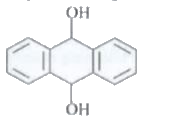Which is expected to react most readily with bromine
a. CH3−CH=CH2
b.CH≡CH
c. CH2=CH2
d. CH3CH2CH3
The correct Answer is:C
To determine which compound reacts most readily with bromine, we need to analyze the reactivity of alkanes, alkenes, and alkynes with bromine.
1. Identify the Types of Compounds:
- We have three types of hydrocarbons: alkanes, alkenes, and alkynes.
- Alkanes are saturated hydrocarbons (single bonds), alkenes have at least one double bond, and alkynes have at least one triple bond.
2. Understand the Reactivity with Bromine:
- Bromine (Br2) can react with alkenes and alkynes through an addition reaction, while alkanes typically require more vigorous conditions (like UV light) to react with bromine.
- The order of reactivity with bromine is generally: Alkenes > Alkynes > Alkanes.
3. Stability of Intermediates:
- When alkenes react with bromine, they form a more stable carbocation intermediate (allylic carbocation).
- Alkynes can also form a carbocation, but it is less stable than that formed from alkenes (vinylic carbocation).
- Alkanes do not form stable intermediates under normal conditions when reacting with bromine.
4. Consider Substituents:
- The presence of electron-donating groups (like -CH3) on alkenes increases their reactivity because they stabilize the positive charge in the carbocation intermediate.
- Therefore, a more substituted alkene (with more electron-donating groups) will react more readily with bromine.
5. Evaluate the Given Options:
- Among the options, we need to identify which one is a more substituted alkene.
- If option A represents a more substituted alkene compared to option C, then option A will react more readily with bromine.
6. Conclusion:
- Based on the analysis, the compound that is expected to react most readily with bromine is option A, which is a more substituted alkene.
Final Answer:
Option A (the more substituted alkene) is expected to react most readily with bromine.
- We have three types of hydrocarbons: alkanes, alkenes, and alkynes.
- Alkanes are saturated hydrocarbons (single bonds), alkenes have at least one double bond, and alkynes have at least one triple bond.
- Bromine (Br2) can react with alkenes and alkynes through an addition reaction, while alkanes typically require more vigorous conditions (like UV light) to react with bromine.
- The order of reactivity with bromine is generally: Alkenes > Alkynes > Alkanes.
- When alkenes react with bromine, they form a more stable carbocation intermediate (allylic carbocation).
- Alkynes can also form a carbocation, but it is less stable than that formed from alkenes (vinylic carbocation).
- Alkanes do not form stable intermediates under normal conditions when reacting with bromine.
- The presence of electron-donating groups (like -CH3) on alkenes increases their reactivity because they stabilize the positive charge in the carbocation intermediate.
- Therefore, a more substituted alkene (with more electron-donating groups) will react more readily with bromine.
- Among the options, we need to identify which one is a more substituted alkene.
- If option A represents a more substituted alkene compared to option C, then option A will react more readily with bromine.
- Based on the analysis, the compound that is expected to react most readily with bromine is option A, which is a more substituted alkene.
Option A (the more substituted alkene) is expected to react most readily with bromine.
Similar Questions
Knowledge Check
Which of the following alcohols would you expect to form carbocation most readily in H2SO4 ?
A B
B C
C D
D
Lead dissolves most readily in
View SolutionWhich of the following oxides is not expected to react with sodium hydroxide ?
View SolutionWhich of the following reacts most slowly with nitric acid.
View SolutionWhat of the following is expected to be most highly ionised in water ?
View SolutionThe compound that will react most readily with NaOH to from methanol is
View SolutionThe compound that will react most readily with NaOH to from methanol is
View SolutionFrom the knowledge of activity series, name a metal which shows the following properties
It reacts readily with cold water
View Solution
